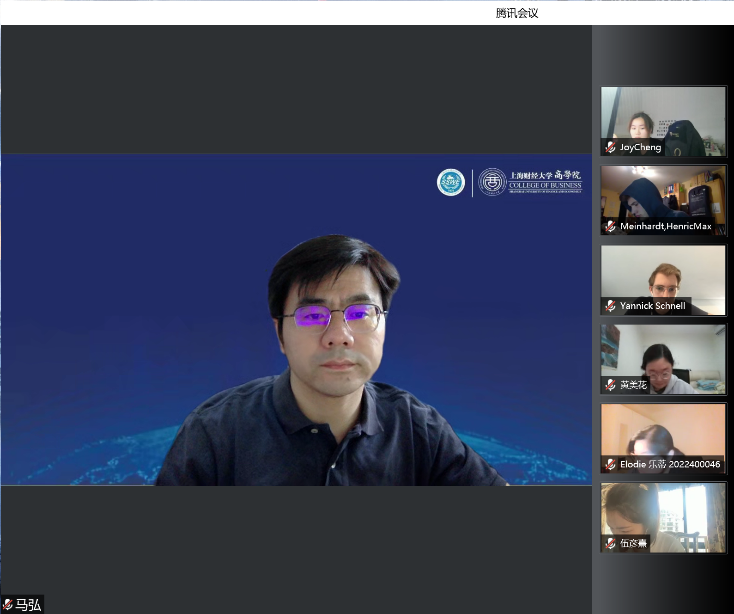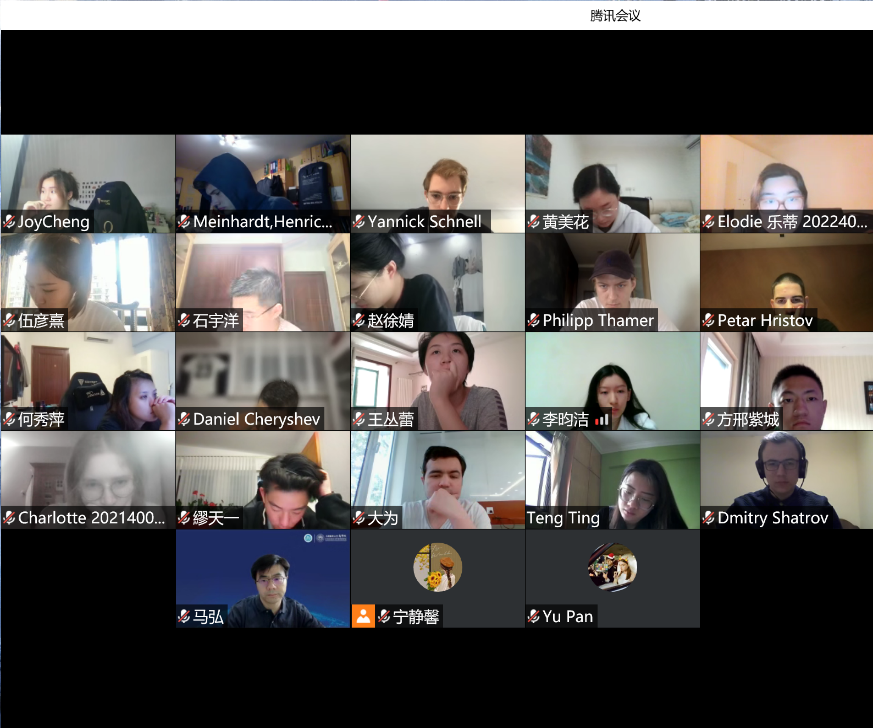In the 2022 spring semester, Professor MA Hong from the Tsinghua University School of Economics and Management (Tsinghua SEM) taught international economics for Tsinghua University's Global Hybrid Class (GHC) project. His course attracted many students from China and several other countries. As international economics is a discipline about goods and services trade relations between different countries, Professor MA said, "The concept of the course is compliant with that of the GHC. Undoubtedly, opening up and communication occupy an important position in the course. Therefore, it's natural for the course to join the GHC. Particularly during the ongoing COVID pandemic, offering such a course reflects Tsinghua's great sense of responsibility."
Citing real-life cases and historical backgrounds
Professor MA said that he had two goals for teaching the course. One was to explain the theories, and the other was to guide his students to analyze real-life policies with what they had learned in class. In order to help the students from different cultural and academic backgrounds to understand what he planned to teach in class, Professor MA elaborated on the historical background of an international trade-related theoretical model and explained the model using real-life cases.

Professor MA Hong gives a virtual lecture on international economics.
"I saw that some of my students were from the US, Spain, Belgium, and Russia. So, I liked to use cases from these countries," he said. "For example, when I talked about the specific factor model, I approached it by explaining the causes of the American Civil War. When I taught the outsourcing model, I talked about Apple's major contractor, Foxconn, which assembles iPhones." Putting theories in the context of history and reality helped the students to understand the past and present as well as to know how to use what they had learned in class, he added.
Talking about his method of teaching complicated and diverse theoretical models, Professor MA said, "I often used mathematical derivations and graphics to make theoretical models more accessible to the students with different academic backgrounds. After explaining the theoretical models, I talked about some real-life cases to enhance their understanding. In addition, I related new studies related to these classical models. For example, there are many cases and statistics emerging from the trade war to prove certain theories right or wrong."
Encouraging interaction and communication in class
"For the GHC, I hoped to create an open atmosphere to encourage the Chinese and international students to communicate and learn from each other and to give me new ideas," Professor MA said. He believes that class interaction was a priority in a course that combined in-person and virtual teaching. At the end of each lecture, he asked his students some questions, which he had prepared in advance, to see how well they understood the topic. During the lecture, he guided his students to make their own analyses and encouraged them to express their own ideas.
"During a virtual lecture on the Heckscher–Ohlin model, I asked some of my students to talk about their countries' factor endowments and main exports in order to enable my students to see differences between factor endowments and how such differences lead to a certain pattern of international trade," he said. He noted that the international students were very active in class discussions and eager to express their ideas, inspiring the Chinese students to follow suit. In this way, the students learned from each other and made progress together.
Keeping an open mind and broadening international horizons
"For the students from different regions, the course was essentially a bridge for communication. It helped the students from different perspectives and backgrounds to form their ideas about international trade-related issues. It encouraged them to communicate their ideas and promoted cultural exchanges. In this way, the students managed to learn more and broaden their global horizons," Professor MA explained. He said he hopes that the international trade-related classical theories and case studies will foster a global vision in his students and make them realize the importance of opening up.

Professor MA Hong interacts with his students during a virtual lecture.
In addition, Professor MA said that he hopes that, by citing Chinese cases such as the ancient Silk Road, China's stagnation during the Age of Exploration, and the One Belt One Road Initiative, his international students could learn more about the history and the current state of China's international trade, and China's contributions to the world in the age of globalization. He said, "By relating what China has learned from its opening up scheme, as well as its current policies and achievements, I hope to effectively tell Chinese stories, amplify China's voice, and enable my international students to understand China better."
Regarding his expectations for his students, Professor MA said, "I hope that each of my students can write a short article about international trade and that they can put what they have learned into practice. I also wish to find more, and better, ways of interaction."
Editor: REN Zhongxi
 Latest News
Latest News